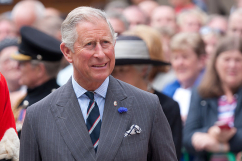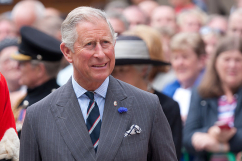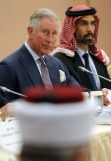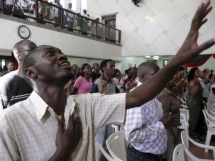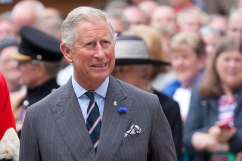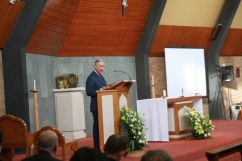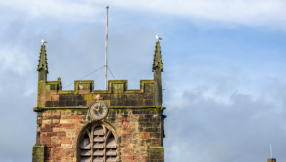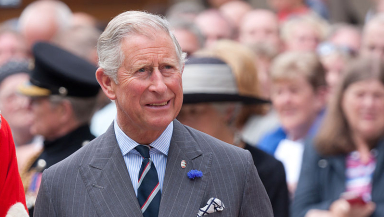
Over the last couple of years the Prince of Wales has repeatedly spoken up for the plight of Christians facing persecution in the Middle East, and more recently his efforts have stepped up a gear. In the last couple of months he has spoken about the issue in the House of Lords, filmed a video address for Catholic charity Aid to the Church in Need and donated to their work. In November, he visited an Armenian church in London, and today a Chaldean community.
His concern seems genuine. As he spoke to Iraqi Christians at the Chaldean church in London today he seemed distressed that his visit was the only tangible thing he was able to do.
The language he has used in these public appearances is more emotional than we are used to hearing from the heir to the throne. Prince Charles said today that he felt "extremely inadequate" to respond to the suffering of people in Iraq. He later added, "I cannot tell you how much I feel for you". When speaking to those whose families have been targeted by Islamist militants he told them that he was praying for them.
Ok, so that's what we say when we feel there's nothing else we can do. But if he has any conscience at all, we have to believe that he is actually doing it.
It is usually the Queen who wins a cheer from evangelicals on Christmas Day if she happens to speak openly about Christianity, while historically there has been more scepticism about Charles' faith, perhaps understandably. (Remember the lexical gymnastics in which he proposed moving from defender of the one faith to defender of all?)
But today after hearing the Chaldean choir sing in Syriac – a form of Aramaic – and the Lord's Prayer spoken in the same language, he said it was "enormously special ... because somehow it connects us even more closely with our Lord [who lived] 2,000 years ago".
His current defence of Christians is in many ways in keeping with his past commitment to highlighting the plight of those from other religious minorities facing persecution, and he has also emphasised the importance of religious communities working together for peace.
Although that may sound like a politically correct cause to champion, it didn't stop him from today implicitly drawing a distinction between those he believes represent true Islam and the Islamist militants who currently control large parts of Iraq, Syria and beyond.
In his address he said: "It seems to me that all faith to some extent shine a light on the divine image in every human life. If that is so, then surely to destroy another human being is to desecrate the image of the Divine, and to do so in the name of faith is nothing less than a blasphemy?"
The Prince is known for saying what he thinks, and is, consequently, no stranger to controversy. Indeed his activism has prompted questions about how he can maintain his involvement in various causes, which include agriculture, architecture and health, when he becomes king.
What is particularly notable is that he isn't afraid to speak when others are not. At present it seems that public interest in the spread of Islamic State across the Middle East is waning. Over the summer there were endless, gruesome reports of beheadings, mass executions and the Christians and Yazidis in Iraq, forced to flee the land they have lived in for centuries.
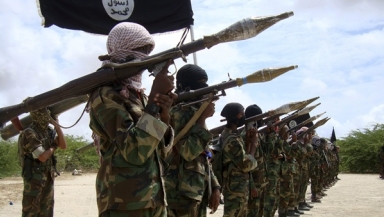
Now Prince Charles has virtually become a lone voice. Of course he isn't the only one who cares, but he has gone where many people fear to tread. It is notable that other Church leaders are not currently being so vocal.
While others are cautious of damaging international relations, he doesn't seem to be quite so worried. And given that he has spent much of his life touring the world doing a very British kind of diplomacy, perhaps we should trust his instinct.
The cynic might say that Prince Charles feels he has some ground to make up in his support of the Church, or that he is increasingly aware of his future role as head of the Church of England.
Ultimately, we can never judge another man's knowledge of God. When it comes to this cause at least, we have to assume that his ongoing commitment is a sign of true fellow-feeling – both as a national leader, and also as a brother in Christ.










